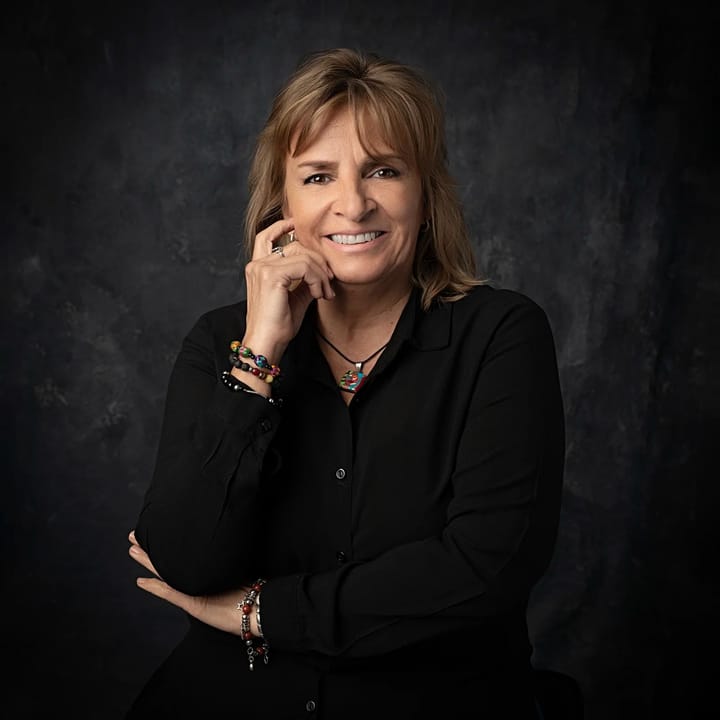Por Claudia Pérez Atamoros

Más allá del cuento, del chisme y de las tribulaciones que le acompañaron siempre; de sus enredados orígenes, de la absurda confusión en su trayectoria actoral y de su enigmática vida personal, la periodista Rosa Castro es una mujer digna de ser traída a la memoria, al presente, para reconocerle esa carrera de primerísima línea que desarrolló y que tanto aportó al periodismo mexicano.
Y que, hasta ahora, nunca nadie se había interesado en plasmarlo.
Desde esta semblanza, sin que suene petulante sino desbordante de satisfacción, Elena Poniatowska encontrará la respuesta a la pregunta hecha a Juan José Reyes Pruneda (Revista El Claustro, 2017, pág. 39-40) fallecido en el 2021: ¿Qué sabes de ella? ¿Es cierto que vive en Cuernavaca?
Y la querida María Luisa “La China” Mendoza habrá de disculparme por arruinar, nomás tantito su texto Trío de Cuerdas en donde a su manera, siempre magistral, anota “porque la imagino cuando niña con un vestido de muselina deambulando por los palacios presidenciales de Venezuela”. No, nunca paseó por ellos. Era hija ilegítima del presidente Castro.
Agradezco a @Opinion51 el espacio y el compromiso para quienes han sido partícipes de la insigne labor reporteril. Rescatarla del olvido y acabar con la injusticia a la que nuestro gremio y los expertos en la historia del periodismo la han condenado, por el solo hecho de haber mantenido su nacionalidad venezolana.
Permanece en el limbo: allá en su tierra la confunden con una actriz paisana suya, y apenas le reconocen su labor en la prensa mexicana; y acá, no la cuentan como periodista autóctona, pese a haber desarrollado toda su carrera en tierras mexicas.
Rosa Castro se codeó con los grandes, aprendió el oficio de los grandes, y se convirtió en una de ellos, tanto que la Poniatowska le dedicó en 2023 el Premio Internacional Carlos Fuentes a la Creación Literaria en Idioma Español, entre un puñado más de pioneras a las que mencionó.
Pregunté por curiosidad a varias colegas de ayer y de hoy; a periodistas de la vieja guardia; a reporteros avispados y contadores de anécdotas de aquellas redacciones gloriosas en donde todo se sabía:
¿Quién fundó la revista Siempre!?
Ni una sola, ni uno solo, dudó. Todos parecían coro celestial.
–Pues el maestro Pagés LLergo, dijo una
Otro, —Pagés, claro, por cierto, te sabes la anécdota de…,
—José Pagés, mi maestro…, menciona otra alardeando
—Pagés, luego de renunciar a la revista Hoy…, me comentan casi dándome un sape…
—Pagés LLergo, el visionario… sentencia alguien más osado que añade:
—¿A poco no lo sabes?
Las verdades a medias se acompañan de una gran dosis de olvido e indiferencia; si bien es cierto que José Pagés LLergo fundó la revista, no lo hizo solo. A su lado estuvieron, codo a codo, Jacobo Martínez LLergo y Rosa Castro.
Luego, se sumarían algunos otros que ayudaron a forjar la revista y le dieron renombre .
La propia Rosa Castro, en entrevista para Excélsior en 1972, lo recordó así: “ayudé a fundar la revista Siempre! junto con Jacobo Martínez Llergo. Los tres tuvimos las agallas necesarias para emprender esa aventura sin nada para empezar, más que nuestras manos. Arias Bernal nos ayudó inmensamente”.
En el artículo titulado Y así nació Siempre! Bajo el signo de la tempestad (Siempre!, núm. 1, 27 de junio de 1953, pp 54 a 59 y 90) Rosa Castro narra de manera entrañable y muy emotiva cómo surgió ese esfuerzo periodístico que dio fama y prestigio a tantos reporteros y escritores; que tocó la cima y permaneció en ella por años, hasta aquel número, el 3678 en donde en la portada apareció Claudia Sheinbaum, hoy presidenta con una hachimaki con esvásticas… portada que, como se sabe, tuvo que ser eliminada.
El periodismo también se ciega, cojea y, a veces, comete errores así…
He aquí, algunos fragmentos de la referida crónica:
Esta es la pequeña historia de un gran propósito, de un gran proyecto… el relato es mío y debo narrarlo a mi manera…
–¿Tú, también?
–Yo también, ¿qué?
–Que si también renunciaste con Pagés y los demás…por la fotografía esa…
-Como un relámpago percibí la situación entera. No me digas más. Yo también renuncié renuncié. Renuncio en este instante.
“Fue una confesión de segundos. Todo pasó como un rayo. Mi decisión en ese momento salió de mis labios, pero no emanada de mi cerebro, sino que surgió de donde salen los más impulsivos sentimientos…
“La primera idea consciente, como un imperativo, fue buscar a Pagés. ¡Se nos ha dicho tanto que somos locos!
“Le deje una nota que decía así:
—José Pagés Llergo. Hermano: acabo de enterarme de lo ocurrido. Las palabras son inútiles. Sólo te digo que me voy al pico del cerro contigo. Punto. Me dice Arias que buscas oficina, etc. Si quieres te ayudo a poner los clavos y demás. Ya sabes, al pico del cerro contigo. Un abrazo fuerte, fuerte. Rosa Castro”
La salud de Rosa Castro tenía altibajos frecuentes. A lo largo de su vida fue así. Nadie logró nunca descifrar del todo si se debían a episodios de depresión profunda o a problemas físicos dado que su corazón le daba algún problema...
Ella misma, en un momento dado, consigna en esta crónica, que se enteró tarde de la renuncia de Pagés a Hoy (con dos días de atraso) porque llevaba cerca de 3 semanas ausente por cuestiones de salud.
De hecho, a Rosa le preocupaba la salud mental en México, la suya y la de los demás, lo que la llevó a ser también pionera en ese campo. Tuvo a su psiquiatra de cabecera, y a instancias de una relación médico-amistosa, con el reconocido psiquiatra Alfonso Millán, le ayudó a fundar el Hospital psiquiátrico Floresta en 1938 y años más tarde, en 1958, juntos crearon La Asociación Pro-Salud Mental del Niño.
¿Se puede separar a Rosa Castro, la enigmática, de la mujer, de la actriz, de la periodista? ¿Fue su vida la mejor interpretación de un personaje? ¿Por qué ese desdén por desmentir y desmitificar lo que de ella se decía?, ¿por qué su personalidad camaleónica?
Escribir sobre Rosa Castro, la mujer, la actriz y la periodista ha sido entrar en terrenos poco firmes, en cuentos mal contados, intentar bucear en aguas pantanosas y sembrar orquídeas en tierras áridas… pero el resultado ha valido la pena. Una hermosa Rosa, multicolor, multifacética. Llena de espinas, con tallo firme, pétalos con aroma universal y raíces tan bifurcadas, como sus entretelones mentales…
Rosa Castro, venezolana de nacimiento, desarrolló su carrera cinematográfica y periodística en México. País al que aportó su tenacidad y talento y por el que fue seducida hasta el final. Amó esta tierra con intensidad. La hizo suya.
Nada, nada, tiene que ver con la “primera actriz venezolana en Hollywood”, Lucila Méndez, alias Lucille Ince. Y sí, sí es hija ilegítima del expresidente venezolano Cipriano Castro y de una de sus mujeres. Y no, nunca filmó en Estados Unidos de América y sí en cambio desarrolló en nuestro país una carrera de actriz que le permitió compartir créditos con figuras del cine nacional, pero lo más importante es que ella aportó al periodismo no solo su talento y su tiempo, sino que coadyuvó, participó y consignó importantes momentos históricos nacionales y mundiales.
Murió en la Ciudad de la Eterna Primavera, Cuernavaca, Morelos, el uno de noviembre de 1993, a punto de cumplir 88 años, y sus cenizas vuelan libres y livianas.
Lo que en vida fue, quedó ahí, bajo la sombra y a los pies de ese enorme e imponente Amate, en las faldas del Tepozteco. Cuenta Artemisa Castro, su nieta, que, al momento de esparcir las cenizas al pie de aquel hermoso árbol, llegó una ráfaga que impregnó de ellas a los deudos ahí presentes, entre ellos, el único hijo vivo, para entonces, de Rosa -madre soltera-, Edmundo, padre de Artemisa y quien fuera, a su vez, hijo de un fiel promotor del comunismo en Colombia, periodista y editor, Alberto Manrique Páramo, y quien tuviera que exiliarse y terminaría viviendo en México.
Continuará.
Las opiniones expresadas son responsabilidad de sus autoras y son absolutamente independientes a la postura y línea editorial de Opinión 51.






Comments ()